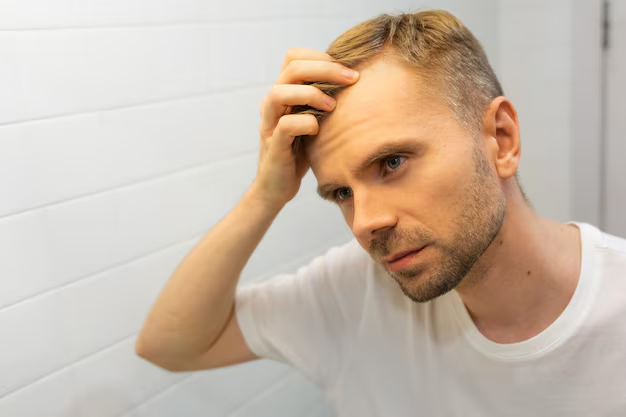Your Guide to Can Diabetes Cause Hair Loss
What You Get:
Free Guide
Free, helpful information about Diabetes FAQ and related Can Diabetes Cause Hair Loss topics.
Helpful Information
Get clear and easy-to-understand details about Can Diabetes Cause Hair Loss topics and resources.
Personalized Offers
Answer a few optional questions to receive offers or information related to Diabetes FAQ. The survey is optional and not required to access your free guide.
Can Diabetes Lead to Hair Loss? Here's What You Need to Know
If you're navigating life with diabetes, you might have noticed some changes to your hair and wondered if they could be linked. Yes, diabetes can indeed cause hair loss. This might come as a surprise, but understanding the relationship between diabetes and hair health can empower you to manage this condition more effectively.
Understanding The Connection
Hair loss in individuals with diabetes is often related to fluctuating blood sugar levels and poor circulation. High blood sugar damages small blood vessels, which can lead to issues with blood circulation. When blood flow is disrupted, hair follicles can suffer, leading to hair thinning or loss. Additionally, autoimmune conditions associated with Type 1 diabetes, like alopecia areata, can attack hair follicles directly.
Stress and Hormonal Changes
Living with a chronic condition like diabetes can be stressful, and stress is a well-known factor that can exacerbate hair loss. Hormonal imbalances, another factor seen in diabetic individuals, can also lead to shedding. Stress management and maintaining balanced hormone levels are crucial for overall health as well as hair maintenance.
Effective Management Strategies
To combat hair loss related to diabetes, it's essential to maintain a healthy lifestyle. Here are some steps you might consider:
- Control Blood Sugar Levels: Keeping your blood sugar in check is crucial. Not only does it improve overall health, but it also reduces the risk of complications like hair loss.
- Balanced Diet: Ensure that your diet is rich in vitamins and minerals necessary for hair growth, such as zinc, vitamin D, and iron.
- Stress Management: Techniques such as yoga, meditation, and regular physical activity can lower stress levels and potentially lessen hair shedding.
- Medical Consultation: Consult with a healthcare provider about your hair loss. They may propose medications or therapies that target the specific causes of your hair loss.
Seeking Financial Assistance
Managing diabetes involves more than just health considerations. The financial burden can be significant due to medical expenses, medications, and lifestyle changes. Fortunately, there are various programs and resources available to help manage costs associated with diabetes management and related conditions like hair loss.
Available Resources
If you find yourself needing financial assistance, here are some options you might explore:
- 🩺 Medicare and Medicaid: These programs can help cover the costs of medical treatments and medications for diabetes management.
- 💊 Prescription Assistance: Look into pharmaceutical programs offering prescriptions at reduced costs or even for free.
- 🧾 Tax Credits: Check if you’re eligible for tax credits related to medical expenses.
- 💼 Social Security Disability Benefits: If diabetes significantly affects your ability to work, you may qualify for these benefits.
- 🎓 Educational Grants: Some organizations offer grants for educational courses that teach coping skills for living with diabetes.
Navigating diabetes and its effects can be daunting, but understanding and managing these challenges head-on can lead to better health outcomes. By taking advantage of available resources and maintaining a proactive approach to your health and finances, you can mitigate the impacts of diabetes on your life, including hair loss.
What You Get:
Free Diabetes FAQ Guide
Free, helpful information about Can Diabetes Cause Hair Loss and related resources.

Helpful Information
Get clear, easy-to-understand details about Can Diabetes Cause Hair Loss topics.

Optional Personalized Offers
Answer a few optional questions to see offers or information related to Diabetes FAQ. Participation is not required to get your free guide.


